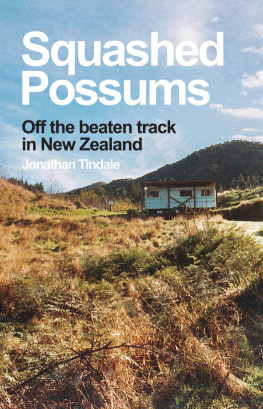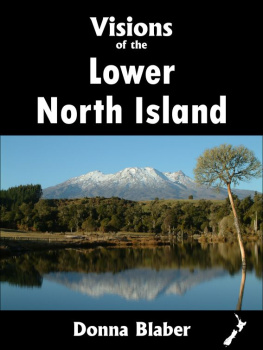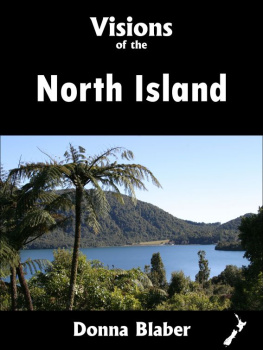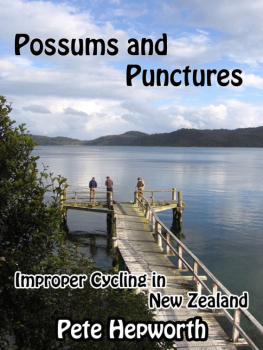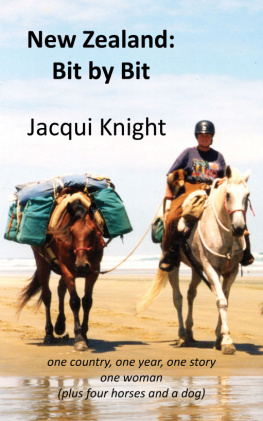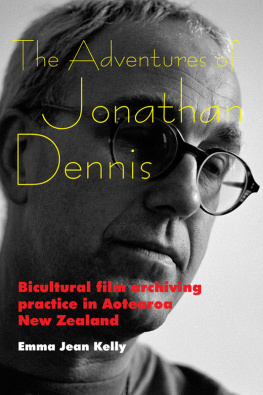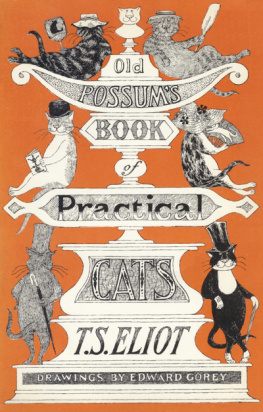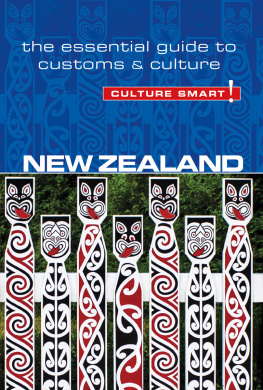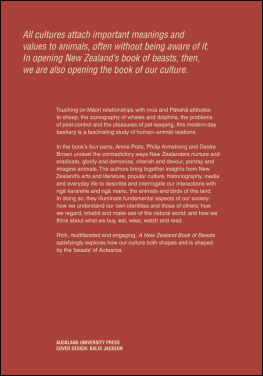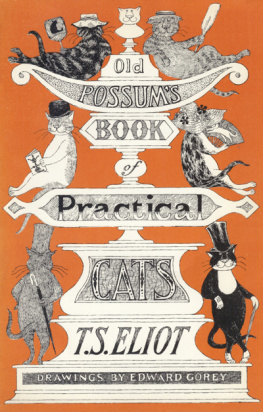Jonathan Tindale - Squashed Possums: Off the beaten track in New Zealand
Here you can read online Jonathan Tindale - Squashed Possums: Off the beaten track in New Zealand full text of the book (entire story) in english for free. Download pdf and epub, get meaning, cover and reviews about this ebook. year: 2015, genre: Non-fiction. Description of the work, (preface) as well as reviews are available. Best literature library LitArk.com created for fans of good reading and offers a wide selection of genres:
Romance novel
Science fiction
Adventure
Detective
Science
History
Home and family
Prose
Art
Politics
Computer
Non-fiction
Religion
Business
Children
Humor
Choose a favorite category and find really read worthwhile books. Enjoy immersion in the world of imagination, feel the emotions of the characters or learn something new for yourself, make an fascinating discovery.
- Book:Squashed Possums: Off the beaten track in New Zealand
- Author:
- Genre:
- Year:2015
- Rating:5 / 5
- Favourites:Add to favourites
- Your mark:
- 100
- 1
- 2
- 3
- 4
- 5
Squashed Possums: Off the beaten track in New Zealand: summary, description and annotation
We offer to read an annotation, description, summary or preface (depends on what the author of the book "Squashed Possums: Off the beaten track in New Zealand" wrote himself). If you haven't found the necessary information about the book — write in the comments, we will try to find it.
Squashed Possums: Off the beaten track in New Zealand — read online for free the complete book (whole text) full work
Below is the text of the book, divided by pages. System saving the place of the last page read, allows you to conveniently read the book "Squashed Possums: Off the beaten track in New Zealand" online for free, without having to search again every time where you left off. Put a bookmark, and you can go to the page where you finished reading at any time.
Font size:
Interval:
Bookmark:
SquashedPossums
Off the beatentrack in New Zealand
Jonathan Tindale
This book is a work ofnon-fiction (mostly).
To be precise, the author has estimated it to be 98%
non-fiction (probably) with a margin of error of 3% (more or less).This raises the curious and unsettling possibility that the bookmay be anywhere between 95% and 101% non-fiction. Confused? I knowI am. So, to summarise, this book has taken a few liberties withwhat is considered the truth, and yet, may be so honest it mighthave bent reality out of place by one per cent.
Names, characters,places and incidents are real,
except when they are the product of the authors imagination andmay be entirely fictitious. Some names have been changed to protectthe individuals identity. The caravans experiences are, more orless, the authors own recollections that have been lent to thecaravan.
For Amy
Theessence of the lone caravan is that it was alone - away fromsociety, a place where domestic proprieties could be scoffedat.
The Caravan byJock Philips
Early British settlers to Australia were amused by the numberof Aboriginal place names with repeated syllables. The Britishersmade up the word woop-woops as a satirical
mock-native word, making fun of some of the existing native placenames. New Zealanders soon adopted the word, using it to mean aplace so distant that it has no real name, instead pronouncing itwith shorter vowels as wop-wops.
Curious Kiwi Words by Max Cryer
Contents
Introduction
Let me be honest withyou, I do not know who wrote this book. A few weeks ago, a packagearrived at my home. A brown jiffy bag. There was no return address.No explanation as to who, or what, had sent this to me. Inside, wasa thick wad of loosely typed papers. The pages were a little worsefor wear, and worn around the edges with a faint whiff of thecountry. As I sat down to read, I was even more shocked by thewords that jumped out of the wrangled pages.
More than a decadeago, I had lived in a caravan in New Zealand. It was what thelocals referred to as a lone caravan, a ramshackle place in themiddle of nowhere, so far removed from suburban life that it had noaddress. This was the wop-wops, only to be found by traversing along and winding dirt track, rutted with hazards and holes. Forseveral months, I had made this strange place my home. I grew toboth love and, at times, hate this place. But I cannot deny theextraordinary effect it had upon me, and upon the contents of thismysterious book.
The package reveals anaccount of my life in this place. From the moment I reversed offthe edge of a cliff and almost tumbled into the oblivion, to myclose encounter with a possum, its all there. The long nightsenveloped in darkness, with nothing but the stars for company andhow, for a moment, the experience turned my head inside out.
On the subject of mindaltering experiences, not only has someone else written my story,but theyve also used extracts from my diary. How the author cameby it, I cannot say, but another narrator is involved and thisvoice is definitely not mine. And who is it that shares theiraccount of such a strange tale? None other than the caravanitself.
God damn! What madnessis this, you ask. Yes, you heard me right. The narrator of thisbook is none other than the caravan. Or so it appears. I cannotcomment on the provenance of the author. After all, I received thisbook anonymously. But before you get wrapped up in wondering how avehicle could perform such a feat, let me tell you that this is avehicle with a story to tell.
This lone caravan itis one of the last of its kind. It is iconic in its own quiet,unassuming way. There are books and photographic galleriesdedicated to it. To the casual observer, it is an eyesore, a largeheap of junk waiting to be swept away and replaced by somethingcleaner and more comfortable. Yet this place is a prominent pointerto the countrys past, a time when pioneers lived on the fringe ofcivilisation and endured the elements without any modernconveniences. Brave and resourceful souls found ingenious ways toconstruct what they needed from scraps of wire and metal, lessonsthat have been learnt and passed on to this very day.
This is the story ofone such solitary caravan; a tale about life in a wild, untamedplace in contrast to the rest of the modern world. New Zealand hasalways been a remote place, with strange and unique wildlife thathas evolved through the protection of thousands of miles of seafrom the nearest predator. New Zealand was the last significantland in the world to be colonised by people. Polynesian explorersarrived some eight hundred years ago and many centuries later, theEuropeans made their discovery. The collision of these two peoplescontinues to reverberate to this day, as the country deftlybalances accusations and reconciliation thanks to the Treaty ofWaitangi.
More than a centuryand a half after the Treaty, New Zealand has grown to a modestpopulation of 4 million. You dont have to travel far to loseyourself in an isolated place. The countrys cities and towns aredwarfed by the vast swathes of forest and wilderness. So, perhapsthis book is not so strange after all; for who better to tell thetale of remote New Zealand than the lone caravan itself.
Not just a caravan
I ll bet you ten bucks youve never read a travel booklike this before. A travel book written by a caravan? A lone vanout in the wild? I wasnt always an inanimate object. I know athing or two about travelling. I have been hitched to the back ofmany a vehicle and pulled all the way from the Pacific Isles ofNorthland, down to the bleak township of Invercargill in the south.But no longer. We all have to retire someplace and here I am, asimple wagon perched on a small scenic hill far from the nearesttown, in a place sometimes romantically and a little crypticallyreferred to as the wop wops.
Hang on, have I misledyou already? I am not just a caravan. Let me offer you mydimensions. I am two caravans, one smaller, one larger, connectedby a short umbilical corridor. As you can imagine I am not asmobile as I once was. My wheels have long since been removed andreplaced with short stumps of tree trunk. Ill admit, at first itwas embarrassing. Whoever heard of a caravan without wheels? But Ilearned to live with the ignominy. What choice did I have? At leastI dont have to worry about getting a puncture and fallingover.
Above me stands aslanted corrugated metal roof that valiantly attempts to protect mefrom the elements. Its not a thing of beauty it must be said, butit keeps me dry. The rain bounces off it with a rat-a-tat-tat likethe trigger happy gunfire in a Rambo movie. My roof is held inplace by several wooden beams that plunge vertically and diagonallyall around me. You might say they embrace me and hold metogether.
Of my two caravans,the smaller one contains a simple kitchen, furnished with a pantryof spices and a temperamental fridge. Theres no oven. Insteadtheres a camping stove with two electric hobs, and a microwavethat might pre-date the Apollo missions. A small laminated formicatable has seen better days, and is beginning to peel around theedges. Outside, sat on my tow cable sits a loud, clumsy washingmachine that shakes and clatters whenever its used. Trust me, itsan earthquake trapped in a white metal box.
My second van is alarger model, with panoramic windows from the bedroom through tothe library. Whoever is staying with me can hardly complain aboutthe view. There is an epic vista of forested hills and the grass isstartlingly green. At night, the light of the Milky Way poursthrough my windows, our spiral galaxy as effective as a thousand100 watt bulbs.
A small iron stovestands next to the double bed. Slapped on the chimney is a yellowpost-it note that reads: Do not use! The rusting chimney wasblocked some time ago, and has not since been fixed. The uselessstove is a constant reminder to any tenant that when winterapproaches, my central heating is not so much inadequate asnon-existent.
Next pageFont size:
Interval:
Bookmark:
Similar books «Squashed Possums: Off the beaten track in New Zealand»
Look at similar books to Squashed Possums: Off the beaten track in New Zealand. We have selected literature similar in name and meaning in the hope of providing readers with more options to find new, interesting, not yet read works.
Discussion, reviews of the book Squashed Possums: Off the beaten track in New Zealand and just readers' own opinions. Leave your comments, write what you think about the work, its meaning or the main characters. Specify what exactly you liked and what you didn't like, and why you think so.

